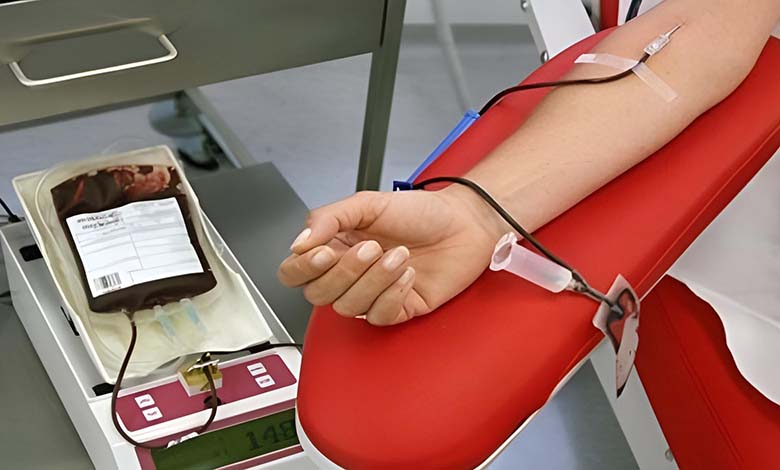Does Donating Blood Cause Weight Gain?

Blood donation is a generous and life-saving act, with thousands of lives depending on it daily. Yet, several myths surround the practice—including the widespread belief that donating blood can lead to weight gain. But is there any truth to this idea, or is it simply a misconception with no scientific basis?
-
Effective Methods to Control Cortisol and Lower Blood Pressure
-
Vegetables and Grains: Essential Natural Allies to Break Down Blood Clots and Lower Cholesterol
Separating myth from fact
Some individuals report increased appetite or slight weight gain after giving blood. While this may feel like a personal observation, from a scientific standpoint, there is no evidence that blood donation causes weight gain.
In fact, clinical studies show no direct link between donating blood and metabolic changes that would promote fat accumulation or weight increase. The misconception likely stems from a misunderstanding of some temporary side effects.
-
Bananas and Potassium Sources: An Effective Alternative to Lower Blood Pressure
-
How to Protect Yourself from Blood Clots While Flying?
Why is this belief so common?
There are several reasons why this idea persists:
- Post-donation snacks: Blood centers often offer snacks (cookies, juice, sweets) to prevent dizziness or weakness. Some may associate this with a need to eat more, or feel that their body “craves” extra food afterward.
- Temporary increase in appetite: The body may respond to blood loss by slightly boosting hunger as it works to recover energy. However, this sensation is usually short-lived and disappears within a day or two.
- Reduced physical activity: Some donors take it easy after donating, which can reduce their energy expenditure temporarily. If paired with overeating, this might cause minimal weight fluctuation.
-
Study: Controlling Blood Pressure Protects Against Dementia
-
Exercising at a Certain Age Protects Against High Blood Pressure
What does science say?
Donating one unit of blood involves losing about 450 to 500 ml, which corresponds to burning around 200 to 650 calories, depending on the study. That’s similar to a moderate workout session. So, in fact, the body burns calories during the recovery process.
If the donor maintains regular eating habits, there is no weight gain. On the contrary, some donors might even experience a temporary boost in metabolic activity.
Indirect benefits of blood donation
Beyond the social and humanitarian impact, studies have suggested that regular blood donation can:
- Stimulate new red blood cell production
- Slightly lower iron levels, which can be beneficial for certain individuals
- Encourage better health awareness, since every donor undergoes a mini health screening
-
This “Affordable” Device Detects Cancer with a Drop of Blood
-
5 Natural Ways to Lower High Blood Pressure
No, donating blood does not cause weight gain.
While some may experience a short-term increase in appetite, this doesn’t translate into weight gain unless it’s paired with overeating and inactivity.
Blood donation is a safe, generous, and beneficial act—for both the recipient and the donor. Debunking myths around it is crucial to encouraging more people to participate in this vital gesture of solidarity.
-
New Blood Test Platform: A Step towards Early Diagnosis of Alzheimer’s disease
-
Warnings against Ignoring High Blood Pressure
-
Including Bananas: Potassium-Rich Foods That Control Blood Pressure
-
5 Steps to Lower High Blood Pressure
-
First in Jordan: Successful Kidney Transplant without Matching Blood Types of Patient and Donor
-
Blood cancer – All You Need to Know












